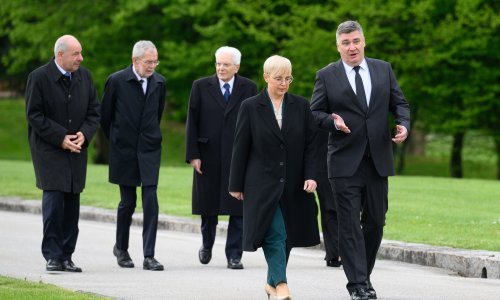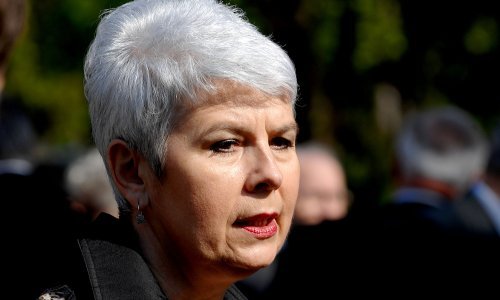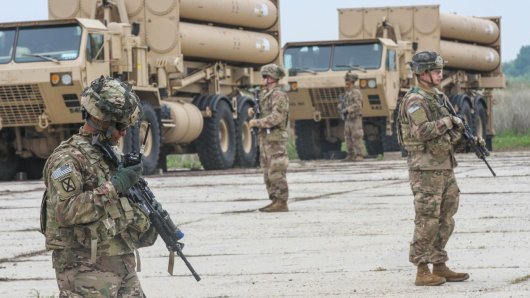Slovenia's Foreign Minister Karl Erjavec on Monday expressed his opposition to possible changes of a draft pleading which his country is to submit to an international arbitration tribunal in charge of determining the course of the border-line at sea and on land between Slovenia and Croatia.
The two neighbours are expected to submit their first depositions to the five-member Arbitral Tribunal on 11 February.
"The latest proposal is harmful for Slovenia's interests as it is difficult to defend it with arguments," Erjavec told the press before the Slovenian parliament began a closed-door session to consider the latest proposal of the pleading after the cabinet of Prime Minister Janez Jansa decided on Friday that a decision on the matter should rest with the national law-making body.
"The Arbitral Tribunal will be guided by international law when addressing the matter," the Slovenian minister said, highlighting the need to provide the tribunal with strong arguments.
PM Jansa, who also arrived for the parliament's meeting, declined to address the press.
Erjavec said that he would strongly defend the wording of the pleading his ministry had prepared and that he would be against corrections proposed by the government.
The corrections, which Jansa described as minor at his news conference on Friday, are believed to have been proposed by the former president of the Slovenian People's Party (SLS), Marjan Podobnik, and are reported to have claimed that the "disputed" territory south of the Dragonja River on the peninsula of Istria should belong to Slovenia as well as the Savudrija area.
Some local analysts fear that the incorporation of such formulations in the text to be adopted by the parliament might put the Slovenian position at risk and make the authors of the initial draft of the pleading give up from presenting their arguments before the tribunal.
The five-member Arbitral Tribunal was constituted in 2012, pursuant to the November 2009 Croatia-Slovenia Arbitration Agreement. The border arbitration agreement was signed by the two countries' then prime ministers, Jadranka Kosor of Croatia and Borut Pahor of Slovenia, on 4 November 2009 in Stockholm. The document was ratified by a two-thirds majority in the Croatian parliament and was supported by 51.54 per cent of Slovenians who went to the polls for a referendum on the matter. The treaty went into force on 29 November 2010.



































